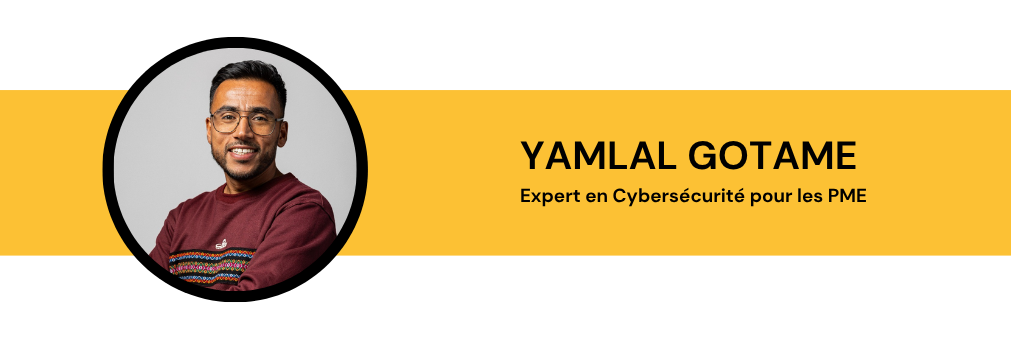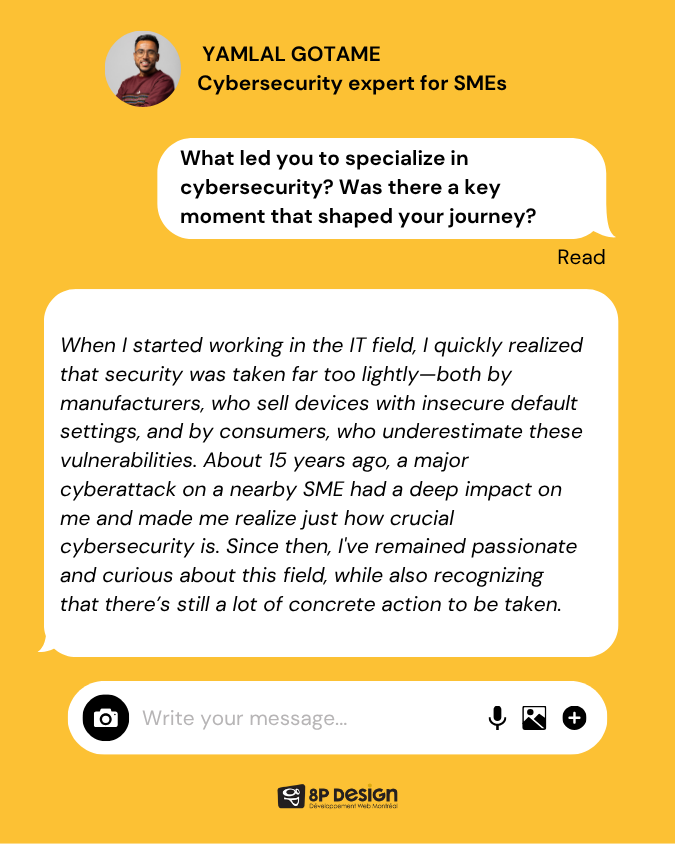For the second episode of our "Expert Advice" series, we’re featuring Yamlal Gotame, a cybersecurity specialist for small and medium-sized businesses. With over 15 years of experience in the field, Yamlal has worked with major companies such as Morgan Stanley and Bell Canada. Today, he leads Data Next Step, a firm that supports organizations in securing their digital transformation.

In an increasingly connected world, digital security has become a core concern—especially for SMEs, which often lack the resources or awareness to fully understand their exposure to cyber threats. At 8P Design, a web agency based in Montreal, we believe that cybersecurity must be embedded from the very beginning of any website design project.
“We’re too small to be a target”: a dangerous myth
This is one of the most common misconceptions. According to Yamlal Gotame, this false sense of security actually makes small businesses more vulnerable. In truth, they are a prime target—less protected and easier to compromise.

The most common cybersecurity mistakes in website management
Many businesses fall into the same traps:
- Failing to apply regular updates to their CMS (WordPress, Drupal, etc.)
- Poor access control management
- Hiring web developers who overlook security
- Not training internal teams
- Ignoring backup strategies or not testing restore procedures
Secure web development starts with secure design
DevSecOps is now a must-have methodology in serious web projects. It means integrating security at every stage: planning, design, development, testing, deployment, and maintenance. For a web agency in Montreal, it’s a mark of quality and trust.
Open-source CMS: Risks and best practices
Platforms like WordPress and Drupal are powerful but frequently targeted. Risks include vulnerable plugins, default configurations, and excessive user permissions. To mitigate:
- Keep the CMS and plugins fully updated
- Limit the number of plugins
- Assess each plugin’s reputation and update frequency
- Perform regular security audits
AI and the future of cybersecurity
Yamlal Gotame highlights how generative AI is transforming the attack-defense landscape. It enables attackers to craft highly realistic threats—but also empowers defenders with real-time detection tools. Adopting AI-powered security strategies is becoming essential.
Key recommendations for SMEs
Even with limited resources, SMEs can take powerful steps:
- Train employees in security best practices
- Enable multi-factor authentication (MFA)
- Establish clear patch management policies
- Back up data regularly and test restorations
In Conclusion
Cybersecurity is no longer optional. Whether you’re planning a website redesign, launching a new site, or expanding your business, integrating security into your digital strategy is crucial to protect your data, clients, and brand.
👉 Looking for a secure, high-performing website? Contact our Montreal web agency, specialized in secure CMS development.

